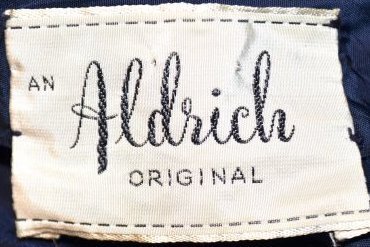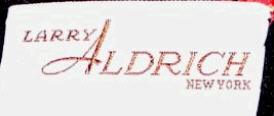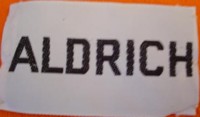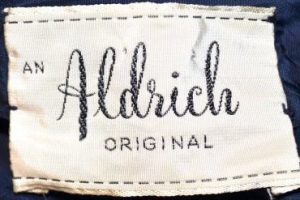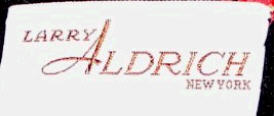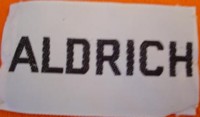Larry Aldrich (1906-2001) was an American manufacturer of women’s clothing. Aldrich began making clothing in 1927 but his own name didn’t appear on labels until the 1940s. Larry Aldrich clothing was stylish, but not fashion-forward. Styles from Paris were adapted to have a more conservative sensibility. He was a collector of modern art, and in the late 1960s was known for using Op Art fabrics that he had designed for him.
In 1957 Aldrich became very involved in art collecting, and made Marie McCarthy (who had been with the firm since 1943) the head designer. By the mid to late 60s, the label read “Marie McCarthy for Larry Aldrich.” In 1964 he founded The Aldrich Contemporary Art Museum in Ridgefield, Connecticut and supported many American artists early in their careers including Jasper Johns, Robert Rauschenberg, Frank Stella, and Cy Twombly. In 1972, Aldrich retired from the clothing business selling it to Lew Prince. The label became simply, “Aldrich.”
Written by Fuzzylizzie
